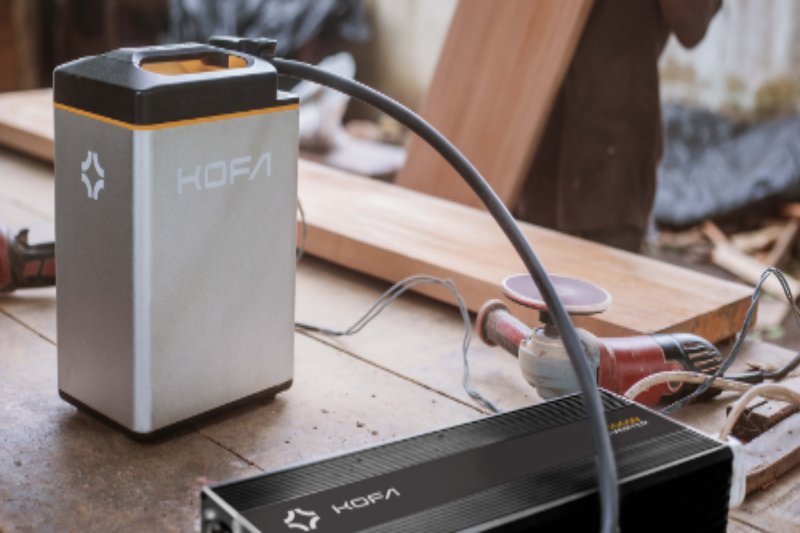Kofa wants to build a customer-driven, cost-effective electrical grid that is fueled by renewable energy sources and portable batteries. With the Kofa Swap & Go system, which is a dispersed network of batteries and swap stations, users may quickly obtain a completely charged battery in a matter of seconds.
Early in 2023, Kofa introduced Ghana’s first connected battery exchange network, centered around its Kore1 battery, with support from the Shell Foundation, Mercy Corps Ventures, the UK’s FCDO, Wangara Green Ventures, and others.
After then, it started developing the Kore2 network, which integrates a number of noteworthy innovations. This innovative technology, which functions as an offset and support for the current electricity grid and is driven by proprietary IoT with full Edge AI capacity, has the potential to completely change the way that West African cities obtain energy.
These improvements—which are attributable to Kofa’s updated IoT platform—allow for completely autonomous battery replacement even in places with spotty or nonexistent internet access. The capabilities of the AI-powered network provide significant client savings through high levels of automation and auto-repairing features.
There are numerous applications for the Kore2 battery, which provides high-performance power at a price that is at least 30% less expensive than gasoline. For instance, the Kore2 can run a refrigerator, lights, and fans—the essentials of a small urban store—for fifteen hours. The Kore 2 is not just for low-power appliances; it can run high-power equipment for two to four hours, including power saws, drills, and embossers.
Over 20,000 battery swaps can be delivered each month by Kofa thanks to its expanded network of 12 strategically located swap stations throughout Accra, some of which are powered by solar energy. By the end of 2024, the business intends to add 80 more stations in various African towns, able to handle 6,000 batteries each. This will boost the network’s capacity to over 100,000 swaps every month, avoiding 2,160 tonnes of CO2 emissions annually just from the Jidi electric motorcycle alone.
“The launch of Kofa’s Kore2 battery network represents a pivotal step towards accessible and affordable energy in urban centres across Africa. Our network connects users to clean energy anywhere not limited by cables and wires, whilst enabling significant savings vs petrol for all users. We look forward to growing our network to bring our batteries into more homes, businesses and vehicles across Africa,” said Erik Nygard, CEO of Kofa.


